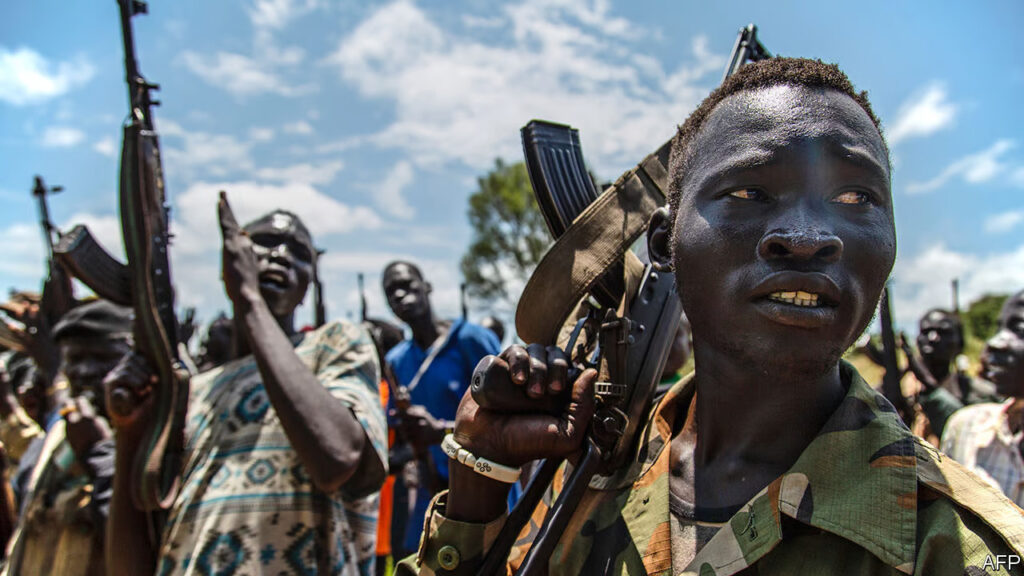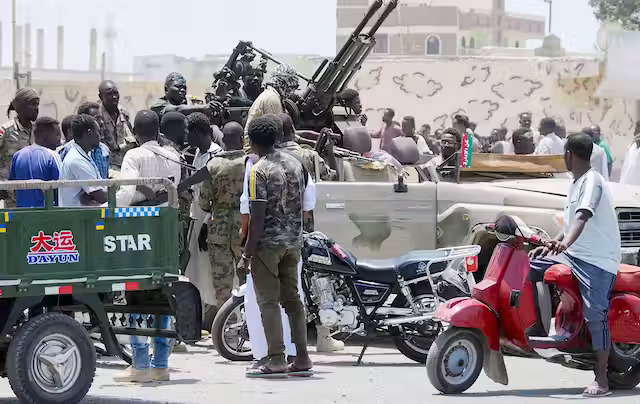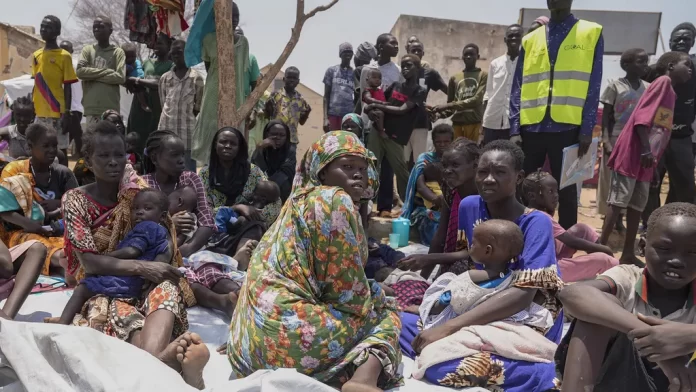Army and Paramilitaries Engaged in Bitter Power Struggle Amidst Disease and Malnutrition Concerns
Sudan’s capital, Khartoum, was once again rocked by violent fighting on Sunday, reflecting the intense struggle for power between the army and paramilitary groups. As the conflict rages on, humanitarian workers are increasingly alarmed by the spread of disease and malnutrition among displaced children.
According to eyewitnesses, residents woke up to the sounds of intense fighting, with various weapons being employed, and fighter planes soaring overhead. While Khartoum bears the brunt of the clashes, the violence has also engulfed the vast region of Darfur, which borders Chad. In addition to the confrontations between the military and paramilitaries, tribal fighters, local militias, and armed civilians have joined the fray. The United Nations has warned that the conflict has acquired an “ethnic dimension,” raising concerns of potential “crimes against humanity.”

Since the conflict erupted on April 15, nearly 3,000 lives have been lost, and 2.8 million people have been displaced or turned into refugees. Disturbingly, the actual number of casualties and sexual assaults is likely much higher, as victims and aid workers face significant challenges in moving around amidst the ongoing bombings.
Reports indicate that a hundred sexual assaults have been recorded by the Sudanese government body responsible for combating violence against women. However, this figure is believed to be severely underestimated, given the difficulties in accurately documenting such incidents. A leading organization that tracks incidents of rape in Sudan has noted 25 sexual assaults in Nyala, the capital of South Darfur, 21 assaults in El-Geneina, the capital of East Darfur, and 42 others in Khartoum.
Survivors in Khartoum have identified the Rapid Support Forces (RSF), led by General Mohamed Hamdane Daglo, as the perpetrators of most sexual assaults. In Darfur, all survivors have accused the RSF. The RSF comprises mainly Janjaweed fighters, Arab militiamen notorious for their brutal actions during the early 2000s in Darfur, under the orders of former dictator Omar al-Bashir, who was deposed in 2019.
The ongoing conflict has forced nearly 180,000 people from Darfur to flee to Chad, according to the United Nations. Within Sudan itself, approximately 2.2 million individuals have been displaced. In the White Nile State, which stretches from the south of Khartoum to the border with South Sudan, hundreds of thousands of people, predominantly women and children, are crammed into nine camps, as reported by Médecins Sans Frontières (MSF), an international humanitarian organization.
The situation in these camps is dire, with suspected cases of measles and a critical health emergency caused by malnutrition among children. MSF warns that Sudan, already one of the world’s poorest countries, is facing an urgent humanitarian crisis. Even prior to the outbreak of war, one in three Sudanese individuals suffered from hunger.

As violence escalates, it is imperative for the international community to take immediate action to address the humanitarian crisis, protect vulnerable populations, and facilitate a peaceful resolution to the conflict in Sudan. The situation demands swift efforts to ensure the provision of essential medical aid, food, and shelter to those affected, particularly women and children who are bearing the brunt of this devastating crisis.


